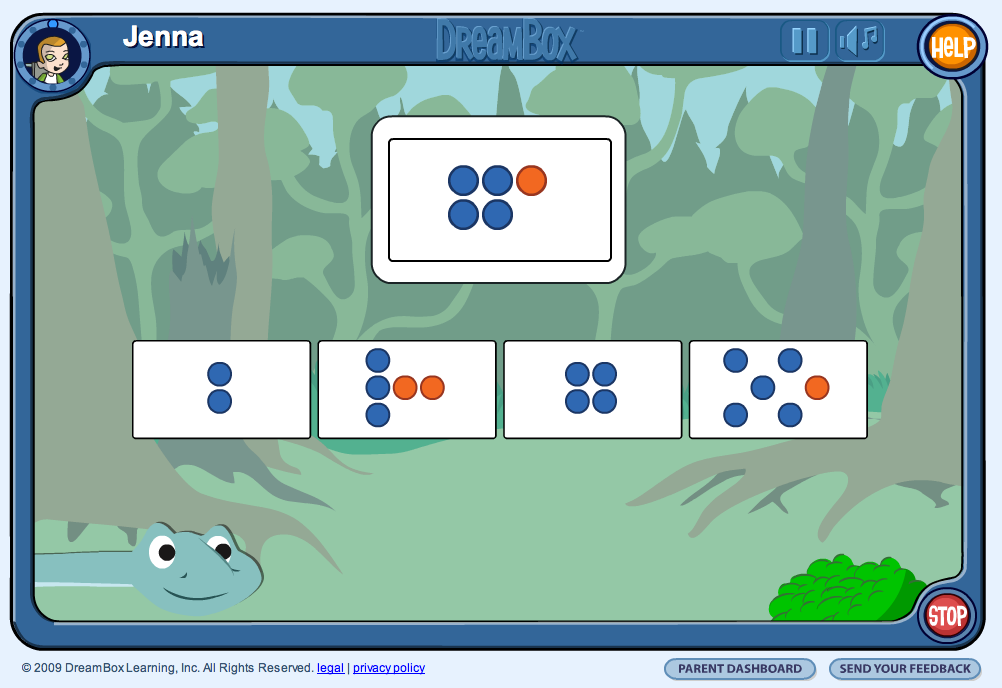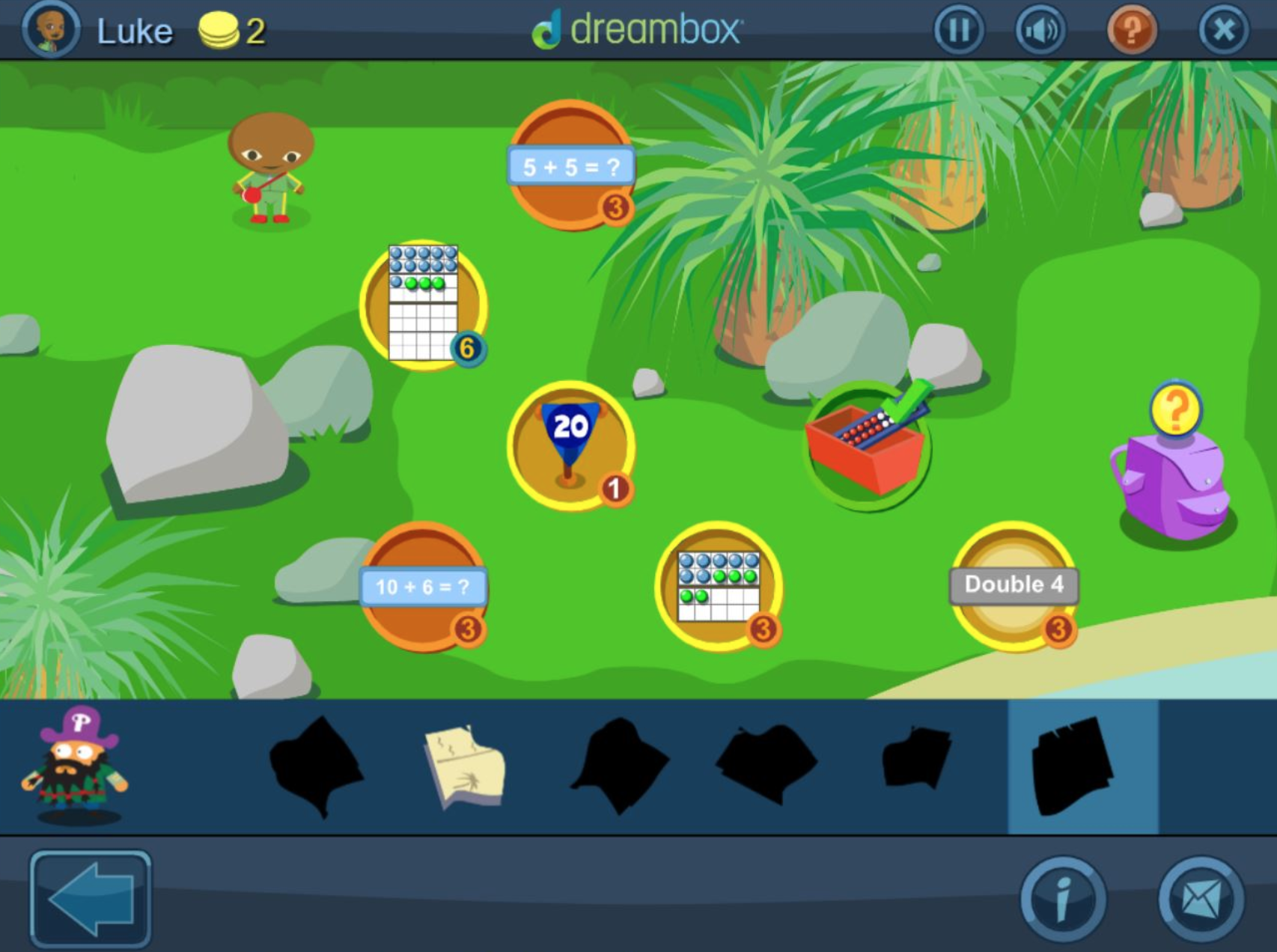DreamBox Learning
Players: 1
Ages: Pre-K through 8th grade
Cost: Free for 90 days, then a subscription fee
Math Ideas: All sorts of arithmetic and algebra, targeted to your child's grade level.
Questions to Ask:
What is your strategy for solving this game?
Time for some fun math ideas for your quarantined children!
I'm going to aim for three newsletters a week, varying ideas so that you'll find interesting activities and games for your preschooler, 2nd grader, or 5th grader. I'm already collecting all sorts of art projects, card games, and other activities to use.
But let's get real: If we are going to get through these weeks, we are going to need some screen time. So wouldn't it be nice to have a math app that was actually great? One that could be played on a computer or an iPad while you make lunch?
Well, I've got a great recommendation: DreamBox Learning. In fact, the only reason I hadn't recommended it in the past is the hefty monthly subscription fee. But DreamBox has announced that they are creating a free 90-day trial for their program, which should take your kids all the way through the spring and into June. They're doing the right thing to help out families like ours.
But even better: The game is really good at helping kids learn math!
How to Use DreamBox
To use DreamBox, just set up a parent account and fill in information about the age of your kids. DreamBox has three different sections (Prek-2nd, 3-5th, and 6-8th grade), so your child will get placed in the appropriate section.
From there, they'll play games that will help the program determine the best math topics for them to work on.
Here is a quick video of my son playing a pre-k game a few years back. Think to yourself as you watch: what math is he learning?
I see him learning about how numbers can look different, but still represent the same quantity. Over time, he's probably noticing that certain pairs of numbers always create the same sum. 3 and 2 makes 5 and so on.
Or check out this video, from a colleague's daughter who was in 2nd grade at the time:
These mini-games are much, much better than most that I've seen. Usually, your kids will be asked to translate a math idea from one representation to another. This gives kids a much more robust and flexible understanding of numbers and operations.
It's no surprise that the visionary behind DreamBox is Cathy Fosnot, a respected math educator and researcher whose Contexts for Learning Mathematics series has been widely influential.
One note of caution: I do not recommend that your child play more than about 15-20 minutes a day. Simply put, they will learn more if they play a little bit every day than if they binge an hour or more in a single session.
Both my son and older daughter have loved DreamBox, but they've also made the mistake of playing too long, getting stuck on a new topic that is too hard for them, and getting discouraged. Inevitably, when they revisit the game in a couple of weeks, they find that it's a lot easier!
So if you use DreamBox, use it as a daily dose of fun, rather than a deep dive. And if your kid ever gets frustrated (which they will), just tell them to step away. You want your kids to have a positive disposition toward the game, and more importantly, toward the math inside.
Help Me Help You!
As always, I get my best inspiration from my readers and their questions. So if you have any questions or ideas, please send them my way! Just reply to this email with anything you've got.



